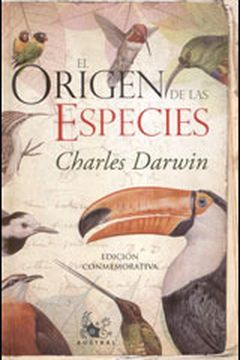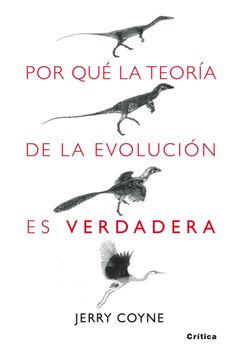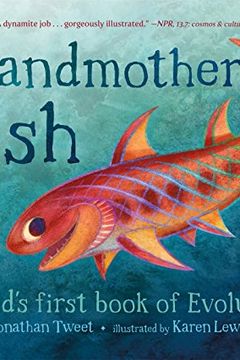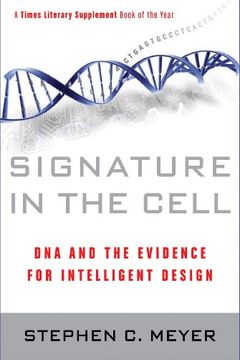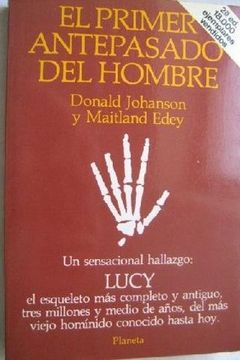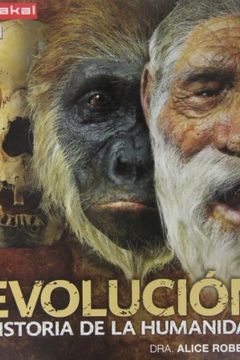Los mejores libros sobre la evolución
Descubre la historia de la vida en la Tierra con estos libros fundamentales sobre la evolución. Estas obras han sido reconocidas una y otra vez por científicos y educadores por sus explicaciones revolucionarias y evidencia de la evolución biológica y la historia natural.
20 libros en la lista
Ordenar por
Cantidad de artículos
Diseño
Con esta obra, Charles Darwin presentó su teoría de la evolución mediante la selección natural que, pasados más de cien años, continúa siendo la base del estudio de la naturaleza para la biología actual. Gran éxito desde su primera edición, suscitó vivas polémicas y su influencia se hizo notar no sólo en la comunidad científica, sino también en toda la sociedad.
El naturalista inglés Charles Darwin estudió medicina en la Universidad de Edimburgo y biología en la Universidad de Cambridge. De 1831 a 1836 realizó un viaje por América del Sur y las islas del Pacífico a bordo del Beagle. Sus descubrimientos zoológicos y geológicos a partir de esta exploración constituyeron la base de sus teorías de la evolución. Además de El origen de las especies (1859), escribió otras muchas obras de gran relevancia, como Variación de las plantas y los animales en estado doméstico (1868) y El origen del hombre y de la selección en relación al sexo (1871).
“The Origin of Species” challenged the beliefs of its time and questioned the deeply embedded religious theories. Darwin has presented his ideas about the evolution of man and other species through the law of survival of the fittest and natural selection. The book classified animal species into various categories. A revolutionary contribution to theoretical and scientific thought.
Presentado en 5 artículos
Ciento cincuenta años después de la publicación de El origen de las especies, donde Charles Darwin desarrolla la teoría de la evolución, aún hay quienes se aferran a mitos de la creación como el relato del Génesis o el diseño inteligente . Frente a ese infantilismo acientífico, el profesor Coyne nos ofrece aquí toda la gam
Presentado en 4 artículos
"Grandmother Fish" explores the origins of life on Earth through engaging call-and-response text and illustrations that come to life. It explains Charles Darwin's theory of common descent in a way that is accessible to children, helping them understand their connection to all living things on the planet. The book also includes helpful backmatter for parents, such as an evolutionary tree of life and tips on explaining natural selection to children.
Presentado en 4 artículos
Recomendado por
Daniel Dennett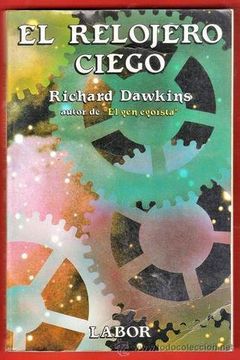
El relojero ciego
Why the Evidence of Evolution Reveals a Universe without Design
Acclaimed as the most influential work on evolution written in the last hundred years, The Blind Watchmaker offers an inspiring and accessible introduction to one of the most important scientific discoveries of all time. A brilliant and controversial book which demonstrates that evolution by natural selection - the unconscious, automatic, blind yet essentially non-random process discovered by Darwin - is the only answer to the biggest question of all: why do we exist?
Presentado en 3 artículos
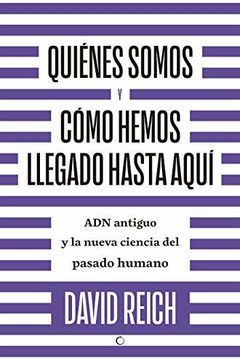
Quiénes somos y cómo hemos llegado hasta aquí
Ancient DNA and the New Science of the Human Past
La extracción de ADN de los huesos de nuestros ancestros ha permitido resolver importantes controversias sobre la prehistoria, hasta el punto de cambiar su interpretación. Hoy en día puede extraerse y analizarse ADN antiguo y, en buena medida gracias a las aportaciones del propio David Reich, se ha puesto de manifiesto que la genómica es tan relevante como la arqueología o la lingüística a la hora de estudiar las poblaciones del pasado.
En Quiénes somos y cómo hemos llegado hasta aquí, Reich nos enseña que el genoma humano, además de aportar toda la información que necesita un óvulo humano fertilizado para desarrollarse, contiene en sí mismo la historia de nuestra especie.
La revolución de la genómica y del ADN antiguo está transformando lo que sabemos sobre el linaje de los humanos y, según nos explica Reich, los estudios de ADN revelan una larga historia de desigualdad entre poblaciones distintas, así como entre ambos sexos y entre individuos de una misma población. Esta obra desmiente la interpretación ortodoxa de que no hay diferencias biológicas relevantes entre poblaciones humanas y, al mismo tiempo, utiliza los sólidos datos de la genómica para ilustrar la improbabilidad de que las diferencias, que sí existen, se correspondan con los estereotipos de siempre.
Presentado en 2 artículos
"Signature in the Cell" debates whether life is a product of unthinking matter or of an intelligent mind. Stephen C. Meyer presents a convincing case for intelligent design based on revolutionary findings in DNA and science. He argues that Charles Darwin's theory of evolution did not refute ID. This book is an eye-opening and often eye-popping read, named one of the top books of 2009 by the Times Literary Supplement. If you're interested in evolution, DNA, and intelligent design, you'll find much to ponder in "Signature in the Cell".
Presentado en 2 artículos
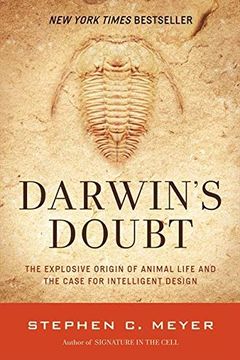
Darwin's Doubt
The Explosive Origin of Animal Life and the Case for Intelligent Design
Explore the central mystery of the “Cambrian explosion” in Darwin’s Doubt. Meyer delves into the sudden appearance of animal life in the fossil record without ancestors, and how biologists have come to appreciate the importance of biological information to create animal forms. Meyer presents a compelling argument for intelligent design as the best explanation for the mysterious features of this event. Discover the fascinating story behind this crucial moment in the history of life.
Presentado en 2 artículos
Johanson, the discoverer, in 1974, of "Lucy"--the oldest skeleton of an erect-walking human yet found--reports the story of his acclaimed find
Presentado en 2 artículos
Rare book
Presentado en 2 artículos
La evolución by Anna Claybourne
Our Family Tree by Lisa Westberg Peters
Life Story by Virginia Lee Burton
Una breve historia de casi todo by Bill Bryson
Sapiens. De animales a dioses by Yuval Noah Harari
When We Became Humans by Michael Bright
La Estructura De La Teoría De La Evolución by Stephen Jay Gould
Cuando las ballenas caminaban by Dougal Dixon
Últimas noticias de sapiens. Revolución en nuestros orígenes by Silvana Condemi, François Savatier
El gen egoísta by Richard Dawkins
Compórtate by Robert M. Sapolsky
